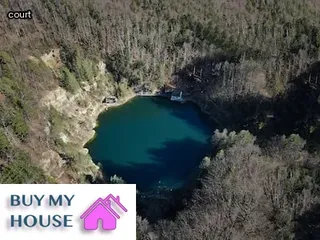The probate process in Colorado is regulated by state laws and can be an overwhelming task to undertake if you are not familiar with the rules. Estate administration involves filing various court documents and attending hearings, as well as other legal requirements.
In order to secure your future, it is important to understand the probate process in Colorado so that you can ensure your estate is administered properly. The first step of the probate process is to file a petition with the court in the county where the deceased person resided at the time of death.
This petition must provide information about who is responsible for managing the estate, including any executors or administrators appointed by a will or court order. Once this petition is approved, creditors have a certain amount of time to submit their claims against the estate.
After all debts and taxes have been paid, assets are distributed according to either a will or state law if there is no will. During this entire process, an administrator must keep accurate records of all transactions related to estate administration, such as notices sent out and assets distributed.
Finally, once all assets have been distributed, an accounting of all financial transactions must be filed with the court and then approved before it can be finalized.

The probate process in Colorado is a complex and often lengthy procedure, and it's important to understand what to expect when going through the process. It begins with an application for probate being filed with the local court.
The executor of the estate must then submit all necessary documents which will be reviewed by the court. After review and approval, the executor will be granted authority to administer the estate by collecting assets, paying off debts, filing taxes, and distributing remaining assets in accordance with the decedent’s wishes.
During this time, creditors may also file claims against the estate for payment. If there are disputes or disagreements among heirs or beneficiaries of the estate, they must be resolved before assets can be distributed.
Lastly, once all obligations have been satisfied and assets have been distributed appropriately, a closing statement is filed with the court to close out probate proceedings. Understanding these steps ahead of time can help ensure that your future is secure and your wishes fulfilled upon death.
When it comes to estate administration, many people are faced with a difficult decision: do it yourself or hire an attorney? Doing it yourself can be appealing because it is often cheaper and you have more control over the process. However, there are some major drawbacks that should be considered before taking this route.
First, estate administration can be complicated and time-consuming if you don't have experience in the area. Additionally, important paperwork may need to be filed in a timely manner so if something is not completed correctly or not filed on time, there could be significant consequences.
On the other hand, hiring an attorney to help with estate administration can offer peace of mind but also comes with its own set of pros and cons. An attorney will have extensive knowledge of Colorado's laws regarding estate administration as well as experience dealing with the process from start to finish.
However, attorneys often charge a much higher fee than doing it yourself which may cause financial strain on those who are already dealing with the loss of a loved one. Ultimately, when deciding whether to do it yourself or hire an attorney for estate administration in Colorado, it is important to weigh both the pros and cons carefully before making a decision.

Filing for administration of an estate in Colorado is a process that requires both knowledge and attention to detail. It is important to understand the laws and regulations pertaining to estate administration in the state, as well as the different steps necessary to complete the filing process.
First, an application must be filed with the appropriate probate court for appointment of an executor. This application should include information about the deceased individual, their assets and liabilities, any prior estate plans they may have had, and details about any beneficiaries or heirs.
Once appointed, the executor will then be responsible for gathering all relevant documents related to the estate including titles to property, real estate deeds, life insurance policies, bank accounts, investments, and any other relevant documents. Additionally, any debts owed by the deceased must be paid off before distribution of assets can begin.
Finally, the executor will be responsible for preparing final tax returns on behalf of the deceased and distributing remaining assets among beneficiaries according to state law. With careful preparation and a thorough understanding of Colorado laws surrounding estate administration, it is possible to successfully file for administration of an estate in Colorado.
Navigating the probate process as an out-of-state beneficiary can be a difficult and confusing experience, particularly in the state of Colorado. It's important to understand how this process works, as it can have a major impact on your future financial security.
Fortunately, estate administration services in Colorado provide guidance for out-of-state beneficiaries throughout the entire probate process. These services help ensure that all of the necessary steps are taken in order to secure your rights, including filing documents with the court, dealing with creditors and distributing property to the appropriate parties.
The key is to work closely with a qualified attorney or other estate administrator who understands the complexities of Colorado probate law and can provide you with advice and assistance every step of the way.

The probate process in Colorado can often feel like a lengthy and arduous task, but the timeline of events can vary greatly depending on the size of the estate, the presence of any disputes, and how quickly paperwork is filed. Generally speaking, if there are no major complications or delays in filing documents, a simple estate usually takes between nine to twelve months to settle.
However, more complex estates with multiple assets and beneficiaries can take up to two years or more to be fully administered. Additionally, if there are any legal proceedings that need to be taken care of due to disagreements among beneficiaries or creditors, it is likely that the timeline for settling the estate will be extended further.
It is important for individuals looking to secure their future through estate administration in Colorado to understand these common lengths of time needed for completing this process.
In Colorado, the probate process can be expensive and time consuming. Estate administration costs may include payment of attorney fees, court costs, executor commissions and other administrative expenses.
Attorney fees are usually based on an hourly rate and will depend upon the complexity of the estate administration process. Court costs may range from filing fees to costs associated with publishing a notice to creditors in a newspaper if necessary.
Executor commissions are established by statute and vary depending on the size of the estate. Lastly, there may be other administrative expenses such as appraisal fees or accounting services that must be paid out of the estate funds during the probate process.
It is important to understand all costs associated with administering an estate prior to beginning the process so that you can prepare for any financial burden associated with settling an estate in Colorado.

When it comes to estate administration in Colorado, understanding the payment structure for legal representation during probate is key to ensuring your future. The executor of the will is responsible for hiring a lawyer and paying their fees, which can take many forms depending on the situation.
Though some lawyers may offer flat-fee arrangements, others may charge hourly fees or retainers. It's important to understand how the lawyer you choose bills for their services so that you can budget accordingly and ensure that your family's assets are managed correctly.
Additionally, if there are multiple beneficiaries involved in the estate, they may also be required to contribute an amount proportional to their share of the inheritance. Understanding all of these details ahead of time will help you prepare for any potential costs associated with estate administration and give you peace of mind that your future is secure.
Securing the future of your estate can be a daunting task, but taking the right steps to ensure that your assets are distributed according to your wishes is essential. In Colorado, there are several ways to avoid or minimize the need for probate when it comes to estate administration.
One way is through Spousal Property Petitions, which provide an easier way for spouses to transfer property in the event of death. Additionally, living trusts and beneficiary designations are another means of avoiding probate by transferring ownership of assets directly to beneficiaries without any court involvement.
Joint tenancy with rights of survivorship is also an option for couples who own real estate together and want their asset to pass automatically from one spouse to another upon death. Finally, gifting property during life can help reduce the size of an estate and avoid probate altogether.
By taking proactive steps such as these, individuals in Colorado can gain peace of mind knowing that their estates will be handled according to their wishes without all the time and expense associated with probate proceedings.

Estate administration is a complex process, and it can be especially difficult if there is no will. It's important to explore all your options when it comes to securing your future in the event of death.
In Colorado, there are alternatives available when it comes to administering an estate without a will. The purpose of these alternate methods is to ensure that the assets are distributed according to the laws of the state.
For example, if a person dies intestate (without leaving a will), then their property is divided up according to Colorado's intestacy laws. This means that spouses and children may receive certain assets, while other family members may not be entitled to anything at all - depending on the circumstances.
Additionally, if a deceased individual has debts, those must also be paid out before any remaining assets can be disbursed. Other alternatives for estate administration include setting up trusts or assigning power of attorney in order to protect one's assets after death.
These measures can help ensure that your wishes are carried out even if you don't have a formal written document in place.
When it comes to estate administration, laws can vary from county to county. In Oklahoma, the counties of Norman, Oklahoma City, Edmond and Stillwater have different rules and regulations governing wills and estates.
For instance, in Norman there is a three-year limit on filing an estate administration claim after someone's death. By comparison, Oklahoma City has a two-year time period for filing claims after someone dies.
When it comes to wills in Edmond, those that are validly executed must be witnessed by two other people who are not related to the person making the will. Meanwhile in Stillwater, any later codicils or changes to a will must also be signed by two witnesses not related to the person making the changes.
It's important for those looking to secure their future and make sure their wishes are properly administered upon death to pay attention to the specific laws of each county when it comes to estate administration.

When it comes to estate administration in Colorado, understanding the options available for a minor involved in an estate can be vital for secure your future. If a minor is named as a beneficiary or if they stand to inherit, it is important to understand the various legal requirements and options available.
Generally, a court-appointed guardian ad litem may be appointed to represent the interests of the minor when it comes to financial matters. Furthermore, if the deceased has left assets behind that are intended to pass directly to a minor, then these assets must be placed in trust or conservatorship until the minor reaches legal age.
In addition, any income generated by these assets must also be managed in accordance with Colorado state law. It is also possible for a parent or other relative of the minor to obtain court-appointed authority over their financial affairs instead of appointing a guardian ad litem.
Ultimately, understanding all of your options and making sure that you are taking all appropriate steps when it comes to securing your future through estate administration in Colorado will help ensure that minors are protected and their best interests are taken into consideration.
When it comes to estate administration in Colorado, understanding the tax implications related to probate is an important aspect of securing your future. Your estate may be subject to certain taxes depending on the size and value of your assets, as well as the length of time between death and probate court proceedings.
It's important to note that while there are federal taxes that apply to all estates, each state including Colorado has its own laws regarding taxation of estates. This means that you should consult a knowledgeable professional to ensure that you understand all applicable taxes and how they may affect your estate.
Additionally, you should be aware of any limits or exemptions on estate taxes in Colorado, as these can also impact your tax liability. By taking the time to understand the applicable laws and regulations surrounding probate and estate tax in Colorado, you can ensure you are fully prepared for the challenges ahead and secure your financial future.

When it comes to estate administration in Colorado, it is important to understand the process of asset distribution after all debts and expenses have been paid. This can be a complex matter, but there are certain steps that must be taken in order for the estate to be settled properly.
The executor or administrator of the estate will first need to determine all outstanding debts and liabilities, then use assets from the estate to pay off any remaining obligations. After all creditors have been paid, the remaining assets are then divided among beneficiaries according to state law.
Depending on the size and complexity of the estate, this process may take some time as more documentation may need to be prepared in order for everything to be finalized. It is important that thorough records are kept throughout the entire process in order to secure your future and make sure that your heirs receive what they are entitled to.
Understanding how real property is handled during the probate process in Colorado is an important part of ensuring the security of your estate. Colorado law provides for a range of options when it comes to administering a deceased individual's estate, including real property.
To ensure that you are making informed decisions about securing your future, it is essential to understand the different types of probate proceedings available and how they impact the handling of real property. For example, formal proceedings involve court involvement and require filing certain documents with the court while informal proceedings can be completed without court supervision.
In either case, a personal representative is appointed to manage the estate and handle all assets including real property. This includes conducting an inventory of all assets, paying off any debts or taxes owed, and distributing assets according to state laws.
It is important to note that if someone dies without leaving a will or other written instructions, there may be special procedures for transferring ownership of real property depending on whether there are living heirs or not. Estate administration in Colorado can seem complex but taking time to understand the various steps involved can help secure your future.

Estate administration in Colorado involves determining how debts and taxes are to be handled after death. It is important for individuals to understand their estate obligations, as failure to properly address them can cause unnecessary delays for the beneficiaries.
Estate planning can ensure that outstanding debts and taxes are paid off in a timely manner, leaving more of the estate assets available for distribution. The executor of the will must prepare an inventory listing all assets and liabilities associated with the decedent's estate, including any remaining unpaid debts.
This inventory should also include any income or estate taxes owed to state or federal agencies. After the inventory is complete, creditors must be notified of the death and receive proof of payment before any assets can be distributed among heirs or beneficiaries.
In some cases, life insurance may cover outstanding debts; however, it is important to review all associated policies and contact the respective insurance companies for assistance. Establishing a trust fund may also help pay off existing creditors while providing future financial protection for loved ones.
When it comes to estate administration in Colorado, hiring a professional fiduciary may be necessary depending on the circumstance. It is important to identify resources available to receive legal assistance during the probate process.
If there is a contested will, various strategies can be explored in order to ensure that it is dealt with correctly. Breaking down the steps of finalizing estate planning documents in an efficient manner is also key for success.
This includes understanding the basics of filing taxes and checking for any remaining debts. It is also essential to have all paperwork properly authenticated before submitting them and then follow up with the court afterwards.
Knowing what documents need to be filed and when can help make sure that everything goes through smoothly so that you can secure your future.
The process for obtaining a letter of administration in Colorado can vary depending on the type of estate. Generally, the executor or other representative must file an application with the probate court in the county where the decedent had permanent residency.
This application will require certain documentation and information regarding the deceased person's assets and liabilities. Once approved, the court will issue a letter of administration that grants authority to administer the decedent's estate.
The letter of administration will also list those who have been appointed to act as executors or administrators of the estate. It is important to note that this document may only be issued after all debts and taxes have been paid off, and any remaining assets have been distributed according to Colorado state law.
It is also important to note that if there are minor children involved in an estate, additional steps may need to be taken in order to secure their future. Estate planning and administration can be complex matters; therefore it is recommended that individuals seek professional legal advice when securing their future through estate planning and administration in Colorado.

If you are looking to become a personal representative for an estate in Colorado, then it is important to understand the process of estate administration. In order to serve as a personal representative in Colorado, you must first be appointed by the court.
This typically requires submitting an affidavit of appointment, filing a bond, and providing proof of your qualifications. Additionally, there may be additional requirements depending on the complexity of the estate.
Once appointed, it is important to ensure that all assets are properly inventoried and appraised so that they can be distributed to heirs or creditors according to the wishes of the deceased. Finally, you will need to file all necessary tax returns and follow all applicable rules and regulations with regards to distributing assets from the estate.
Understanding these steps is critical for ensuring that you successfully secure your future as a personal representative for an estate in Colorado.
In Colorado, executors are expected to settle an estate within a reasonable amount of time. Generally, the executor must settle the estate within two years of the decedent's death.
However, this timeline can be extended if beneficiaries or creditors agree to additional time. During the two-year period, the executor is responsible for collecting and managing assets, paying debts and taxes, filing forms with the court and distributing assets to beneficiaries.
It is important that executors take steps to secure their own future by properly administering an estate in Colorado so that they do not face personal liability down the line.
Yes, probate is mandatory in Colorado for estates with a gross value exceeding $50,000. This process involves the court overseeing the distribution of assets from an estate to beneficiaries or creditors.
The court will ensure that all debts are paid and that any remaining assets are distributed properly. When an individual passes away in Colorado, they may have designated a personal representative to manage the estate.
If not, then the court will appoint one. This personal representative is responsible for filing documents with the court as well as distributing assets according to state law.
Probate also ensures that any disputes between heirs can be handled by the court in a timely manner. As part of this process, creditors must be notified so that they can make claims against the estate if necessary.
Estate administration can be complicated, but it's important to make sure that you secure your future by ensuring proper probate procedures are followed in Colorado.
A: In Colorado, the heirship of a deceased's estate is determined by their will (testamentary) or by intestacy laws if there is no will. The devisees are the individuals named in the will who will receive the deceased's personal property. An administrator of an estate is appointed by the court to manage the assets of the deceased and distribute them according to the terms of their will or intestacy laws.
A: To become an administrator of an estate in Colorado, you must be appointed by a court or named as such in a will or trust. The probate process typically involves filing the will with the court and then proving that it is valid. The power of attorney document must also be filed with the court. Heirship, devisees, testamentary and personal property may also factor into the administration of the estate.

A: In order to become an Administrator of an Estate in Colorado, Deeded Property should be identified and documented as part of the estate. Litigation may need to be pursued in order to determine rightful heirs or beneficiaries to the estate if it is intestate property (i.e. without a will). Once rightful heirship is established, money must be appropriately distributed according to deed and/or probate court orders.
A: An administrator of an estate in Colorado is responsible for filing federal and state estate tax returns. Heirs and devisees may also be liable for inheritance taxes depending on the value of the assets they inherit. They must also ensure that all debts, taxes, and expenses are properly paid before distributing any assets to beneficiaries. Additionally, the administrator must adhere to the terms of any Will or Trust established by the deceased, as well as Power of Attorney documents if applicable.
A: Asset distribution is a key component of the process to become an administrator of an estate in Colorado. It involves ensuring that all assets are identified, appraised, and distributed according to the wishes of the deceased as expressed in their Will, Trusts, or Power of Attorney. Heirship, Devisees, Testamentary and Personal Property must be considered in order to comply with Inheritance Laws and pay any necessary taxes.

A: To become an administrator of an estate in Colorado, all legal documents must be filed with the Judicial Branch. Heirship, Devisees, Testamentary and Personal Property must all be taken into account and liens, judgements and Inheritance Laws must be followed. Furthermore taxes must be paid according to Trusts, Probate and Power of Attorney laws.
A: An administrator of an estate in Colorado is legally required to act with the highest level of care and loyalty when managing the property of the deceased. This includes fulfilling their obligations to any heirs, devisees, or personal property holders, as well as paying taxes according to state inheritance laws and probate code. The administrator is also responsible for distributing assets according to the will or trust documents.
A: In Colorado, estate administration is governed by the Colorado Probate Code. This code outlines the process for writing wills and setting up trusts, which are both necessary for an effective estate plan. It also addresses matters such as Heirship, Devisees, Testamentary and Personal Property, taxes owed on inheritances, trust taxation and probate proceedings.

A: An administrator of an estate in Colorado should be aware of the federal and state inheritance and gift taxes that may apply to an estate and plan accordingly. They should also be aware of any applicable exemptions or exclusions from these taxes and how estate assets can be allocated, transferred, or otherwise organized to optimize the tax outcomes. Additionally, they should consider any potential capital gains taxes that could apply to certain assets within the estate.
A: To become an administrator of an estate in Colorado, one must have knowledge of the state's laws governing estate administration with respect to will writing and trusts, as well as be able to manage the payment of taxes related to Inheritance Laws, Trusts, and Probate. Additionally, Heirship, Devisees, Testamentary and Personal Property must also be taken into consideration.
A: To become The Personal Representative of an estate in Colorado, the will must be admitted to probate by a court and the will must name you as The Personal Representative. Heirship, Devisees, Testamentary and Personal Property may also factor into the court's decision.